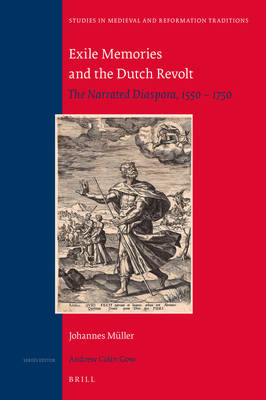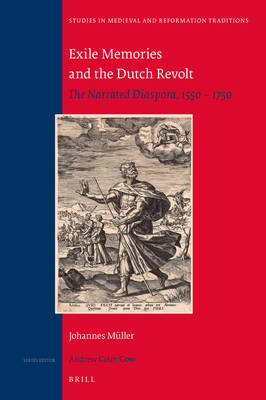
- Afhalen na 1 uur in een winkel met voorraad
- Gratis thuislevering in België vanaf € 30
- Ruim aanbod met 7 miljoen producten
- Afhalen na 1 uur in een winkel met voorraad
- Gratis thuislevering in België vanaf € 30
- Ruim aanbod met 7 miljoen producten
Zoeken
€ 169,46
+ 338 punten
Omschrijving
The Dutch Revolt (ca. 1572-1648) led to the displacement of tens of thousands of people. In Exile Memories and the Dutch Revolt, Johannes Müller shows how migrants and their descendants in the Dutch Republic, England and Germany cultivated their Netherlandish heritage for more than 200 years. Memories of war and persecution shaped new religious and political identities that combined images of suffering and heroism and served as foundational narratives of newcomers.
Exposing the underlying narrative structures of early modern exile memories, this volume shows how stories about the Dutch Revolt allowed migrants to participate in their host societies rather than producing a closed and exclusive diaspora. While narratives of religious persecution attracted non-migrants as well, exile networks were able to connect newcomers and established residents.
Exposing the underlying narrative structures of early modern exile memories, this volume shows how stories about the Dutch Revolt allowed migrants to participate in their host societies rather than producing a closed and exclusive diaspora. While narratives of religious persecution attracted non-migrants as well, exile networks were able to connect newcomers and established residents.
Specificaties
Betrokkenen
- Auteur(s):
- Uitgeverij:
Inhoud
- Aantal bladzijden:
- 264
- Taal:
- Engels
- Reeks:
- Reeksnummer:
- nr. 199
Eigenschappen
- Productcode (EAN):
- 9789004311664
- Verschijningsdatum:
- 7/04/2016
- Uitvoering:
- Hardcover
- Formaat:
- Genaaid
- Afmetingen:
- 157 mm x 236 mm
- Gewicht:
- 430 g

Alleen bij Standaard Boekhandel
+ 338 punten op je klantenkaart van Standaard Boekhandel
Beoordelingen
We publiceren alleen reviews die voldoen aan de voorwaarden voor reviews. Bekijk onze voorwaarden voor reviews.











